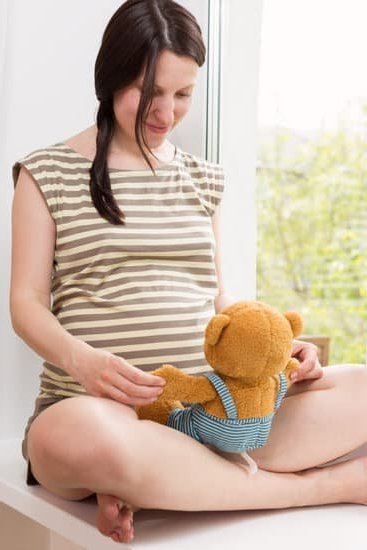Are you wondering how to lose weight after pregnancy? The post-pregnancy weight loss journey can often feel like a daunting task, but it’s important to understand that it is a gradual and individual process.
In this article, we will explore the various aspects of post-pregnancy weight loss, from setting realistic goals to the role of diet, exercise, breastfeeding, stress management, and seeking professional support. Whether you’re a new mom or have had multiple pregnancies, this guide will provide valuable insights and tips for achieving a healthy and sustainable post-pregnancy weight loss.
Post-pregnancy weight loss is not just about fitting into pre-pregnancy jeans; it’s about nourishing your body, regaining strength and energy, and embracing a positive body image. Setting realistic goals is crucial in this journey. We’ll discuss the importance of setting achievable targets that take into account the changes your body has undergone during pregnancy and childbirth.
Nutrition plays a pivotal role in post-pregnancy weight loss. We’ll delve into the significance of a balanced diet that supports your body’s recovery while promoting healthy weight loss. Additionally, we’ll explore safe and effective exercises and workouts tailored specifically for postpartum moms.
The impact of breastfeeding on post-pregnancy weight loss will also be addressed as well as how managing stress and sleep can aid in the process. Lastly, we’ll highlight the importance of seeking professional help and celebrating the transformation to promote self-care and body positivity throughout this transformative journey.
Setting Realistic Post-Pregnancy Weight Loss Goals
After pregnancy, many new mothers are eager to shed the excess weight gained during pregnancy. However, it is important to set realistic post-pregnancy weight loss goals to ensure a healthy and sustainable transformation. Instead of striving for rapid weight loss, focus on gradual and consistent progress.
First and foremost, it’s crucial to consult with a healthcare professional before starting any post-pregnancy weight loss journey. They can provide personalized recommendations based on factors such as your overall health, the type of delivery, and any potential complications during pregnancy.
It’s also essential to understand that the body needs time to recover after childbirth. Typically, women should wait at least six weeks after giving birth before attempting any strenuous exercise or dieting. During this time, focus on gentle movements such as walking and pelvic floor exercises to aid in recovery.
Remember that every woman’s body is different, and weight loss after pregnancy will vary from person to person. Factors such as genetics, age, lifestyle habits, and overall health can influence how quickly the weight comes off. By setting realistic and achievable goals, you can avoid unnecessary stress and pressure during this sensitive period of adjustment.
| Post-Pregnancy Weight Loss Tips | Importance |
|---|---|
| Consult with a healthcare professional | Personalized recommendations based on individual health |
| Wait at least six weeks before strenuous exercise or dieting | Promotes proper postpartum recovery |
| Set realistic and achievable goals | Avoid unnecessary stress and pressure |
Importance of a Balanced Diet for Post-Pregnancy Weight Loss
After pregnancy, a balanced diet is crucial for new moms who are looking to lose the extra weight gained during pregnancy. It is important to focus on nourishing the body with the right nutrients while also creating a calorie deficit to promote weight loss. Understanding the role of a balanced diet in post-pregnancy weight loss can make a significant difference in achieving weight loss goals and promoting overall health.
Healthy Nutrient-Rich Foods
Incorporating nutrient-dense foods such as fruits, vegetables, lean proteins, whole grains, and healthy fats into your diet can provide essential vitamins and minerals necessary for post-pregnancy recovery and weight loss. These foods can also help to keep you feeling full and satisfied, reducing the likelihood of overeating or reaching for unhealthy snacks.
Portion Control and Mindful Eating
Practicing portion control and mindful eating can aid in post-pregnancy weight loss by preventing excessive calorie intake. New moms can benefit from taking the time to enjoy their meals, chewing slowly, and being aware of hunger cues and fullness signals. By paying attention to portion sizes and listening to their bodies, they can naturally regulate their food intake without feeling deprived.
Hydration
Staying hydrated is essential for post-pregnancy weight loss as it can help control appetite, support metabolism, and promote overall well-being. Drinking an adequate amount of water throughout the day can also aid in digestion, reduce bloating, and flush out toxins from the body. Incorporating hydrating beverages such as herbal teas or infused water can be beneficial for staying on track with hydration goals while adding flavor without added calories.
By following a balanced diet that includes nutrient-rich foods, practicing portion control and mindful eating, and staying properly hydrated, new moms can effectively work towards losing weight after pregnancy while prioritizing their overall health and well-being.
Safe and Effective Post-Pregnancy Exercises and Workouts
After giving birth, many women are eager to shed the extra pounds that they gained during pregnancy. However, it’s important to approach post-pregnancy weight loss with caution, especially when it comes to exercise. Your body has just gone through a significant physical change, so it’s crucial to ease back into fitness in a safe and effective way.
One way to start getting back into shape is by engaging in low-impact exercises such as walking, swimming, or gentle yoga. These activities can help strengthen your muscles and improve your overall fitness without putting too much strain on your body. As you start feeling stronger, you can gradually increase the intensity of your workouts.
In addition to low-impact exercises, post-pregnancy strength training can also be beneficial for losing weight after pregnancy. Building muscle can help boost your metabolism and burn calories more efficiently. Focus on exercises that target major muscle groups like squats, lunges, and planks. It’s essential to listen to your body and not push yourself too hard in the beginning. Remember that post-pregnancy weight loss is a journey that requires patience and self-care.
| Exercise | Benefits |
|---|---|
| Walking | Improves cardiovascular health and aids in weight loss |
| Strength Training | Increases muscle mass and boosts metabolism |
| Yoga | Enhances flexibility, strength, and relaxation |
The Role of Breastfeeding in Post-Pregnancy Weight Loss
Hormones released during breastfeeding can help the uterus return to its pre-pregnancy size, which can contribute to post-pregnancy weight loss. However, it’s important to note that not all women experience significant weight loss while breastfeeding. The body requires additional caloric intake to produce breast milk, and some women may even retain some weight until they wean their baby off breastfeeding.
Incorporating a balanced diet is still crucial for post-pregnancy weight loss, even while breastfeeding. Here are some key dietary tips for new mothers who are nursing:
- Consume nutrient-dense foods: Include plenty of fruits, vegetables, whole grains, lean protein sources (e.g. chicken, fish), and healthy fats in your meals.
- Stay hydrated: Drink plenty of water throughout the day to support milk production and stay hydrated.
- Avoid crash dieting: Severe calorie restriction can negatively impact milk supply and overall health.
It’s important for breastfeeding mothers to consult with a healthcare professional or a registered dietician to ensure that they are meeting their nutritional needs while also focusing on how to lose weight after pregnancy safely without compromising their own health or that of their baby. With the right approach, it’s possible to achieve post-pregnancy weight loss goals while maintaining a healthy breastfeeding relationship.
Managing Stress and Sleep for Post-Pregnancy Weight Loss
After giving birth, many new mothers experience stress and sleep deprivation, which can impact their ability to lose weight. It’s important to prioritize managing stress and getting adequate sleep in order to support post-pregnancy weight loss. Here are some tips on how to achieve this:
- Practice relaxation techniques: Engage in activities such as yoga, meditation, or deep breathing exercises to reduce stress levels.
- Delegate tasks: Don’t be afraid to ask for help from your partner, family members, or friends in caring for the baby or handling household chores.
- Get quality sleep: Aim to rest whenever the baby sleeps, even if it means taking short naps throughout the day. Establish a bedtime routine that promotes relaxation and good sleep hygiene.
Stress and lack of sleep can lead to hormonal imbalances that may affect metabolism and contribute to weight retention. By making an effort to manage stress and prioritize sleep, new mothers can support their weight loss journey after pregnancy.
In addition to these strategies, it’s important for new moms to communicate with their healthcare provider about any concerns related to post-pregnancy weight loss and mental well-being. Seeking professional help when needed is crucial for overall postpartum health. By taking care of both physical and emotional wellness, women can better navigate the challenges of losing weight after pregnancy while also adjusting to motherhood.
Seeking Professional Help and Support for Post-Pregnancy Weight Loss
Losing weight after pregnancy can be a challenging journey for many women. While some may be able to accomplish their post-pregnancy weight loss goals on their own, others may benefit from seeking professional help and support.
It is important to recognize that every woman’s body is different, and what works for one person may not work for another. Therefore, seeking guidance from healthcare professionals, such as a doctor or a registered dietitian, can provide personalized recommendations and support tailored to individual needs.
One of the most valuable resources for post-pregnancy weight loss is consulting with a nutritionist or dietitian. These professionals can assist in creating a balanced meal plan that meets the nutritional needs of both the mother and her baby if she is breastfeeding. They can also provide guidance on portion control, choosing nutrient-dense foods, and navigating any dietary restrictions or preferences.
Additionally, seeking support from a physical therapist or trainer who specializes in postpartum exercise can be beneficial. These professionals can create a customized exercise plan that considers the specific needs of postpartum recovery while targeting weight loss goals effectively and safely. They can also provide guidance on proper technique to prevent injury and offer modifications for any physical limitations experienced after childbirth.
Celebrating the Post-Pregnancy Weight Loss Journey and Body Positivity
After going through the transformative experience of pregnancy and childbirth, it’s important for new mothers to celebrate their post-pregnancy weight loss journey and embrace body positivity. This section will discuss the importance of recognizing and celebrating the achievements of post-pregnancy weight loss, as well as fostering a positive body image.
Recognizing Achievements
The post-pregnancy weight loss journey is no easy feat, and it’s essential for new mothers to acknowledge and celebrate their progress. Whether it’s losing a few pounds or achieving significant weight loss, every milestone should be recognized as a triumph. By acknowledging these achievements, new mothers can feel empowered and motivated to continue on their weight loss journey.
Fostering Body Positivity
Body positivity is an essential aspect of the post-pregnancy weight loss journey. It’s crucial for new mothers to embrace their bodies at every stage, appreciating the strength and resilience that comes with pregnancy and childbirth. By fostering body positivity, new mothers can develop a healthy relationship with their bodies and focus on overall well-being rather than unrealistic beauty standards.
Embracing Self-Care
Celebrating the post-pregnancy weight loss journey also involves embracing self-care. Whether it’s indulging in a relaxing spa day, treating oneself to a favorite activity, or simply practicing mindfulness, self-care plays a crucial role in maintaining a positive mindset throughout the weight loss journey. It’s important for new mothers to prioritize their mental and emotional well-being while celebrating their achievements.
By recognizing achievements, fostering body positivity, and embracing self-care, new mothers can celebrate their post-pregnancy weight loss journey in a meaningful way. It’s important to remember that every mother’s experience is unique, and by embracing body positivity and self-love, they can navigate this period with confidence and grace.
Conclusion
Losing weight after pregnancy is a journey that requires patience, dedication, and self-care. It’s important for new mothers to understand that the process may take time and setting realistic goals is essential. By focusing on a balanced diet, safe exercises, and managing stress and sleep, women can effectively achieve their post-pregnancy weight loss goals. With the support of professionals and loved ones, it’s possible for mothers to navigate this journey successfully.
The key to losing weight after pregnancy lies in embracing the transformation while practicing self-care. It’s important for new mothers to prioritize their health and well-being as they navigate through this phase of their lives. The role of breastfeeding in post-pregnancy weight loss should also be acknowledged as it can aid in shedding extra pounds while providing nourishment for the baby.
While the focus is often on losing weight after pregnancy, it’s crucial for women to celebrate their bodies and the journey they have been through. Body positivity plays a significant role in promoting mental well-being during this period of change. Embracing the post-pregnancy weight loss transformation involves not only physical changes but also emotional and mental growth. By recognizing these aspects, women can truly appreciate their journey towards achieving a healthier lifestyle post-pregnancy.
Frequently Asked Questions
Is It Harder to Lose Weight After Having a Baby?
It is commonly believed that losing weight after having a baby can be harder due to the changes in hormones, metabolism, and lifestyle. The added responsibilities of caring for a newborn can also make it challenging to find time for exercise and meal preparation.
How Can I Get Slim After Giving Birth?
Getting slim after giving birth involves a combination of healthy eating, regular physical activity, and patience. Gradual weight loss is recommended, aiming to lose about 1-2 pounds per week. Setting realistic goals and seeking support from healthcare professionals can also be beneficial.
How Long Does Postpartum Weight Retention Last?
Postpartum weight retention can vary for each individual. It’s normal for some women to retain weight for up to one year after giving birth. Factors such as breastfeeding, physical activity levels, diet, and genetics can all play a role in how long it takes to return to pre-pregnancy weight.

Welcome to my fertility blog. This is a space where I will be sharing my experiences as I navigate through the world of fertility treatments, as well as provide information and resources about fertility and pregnancy.





